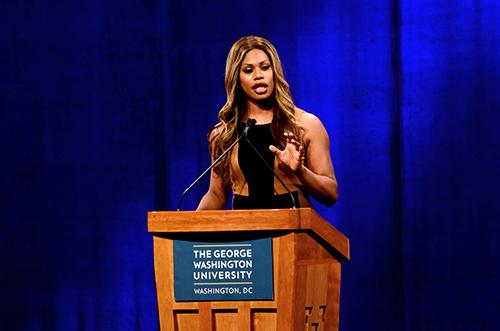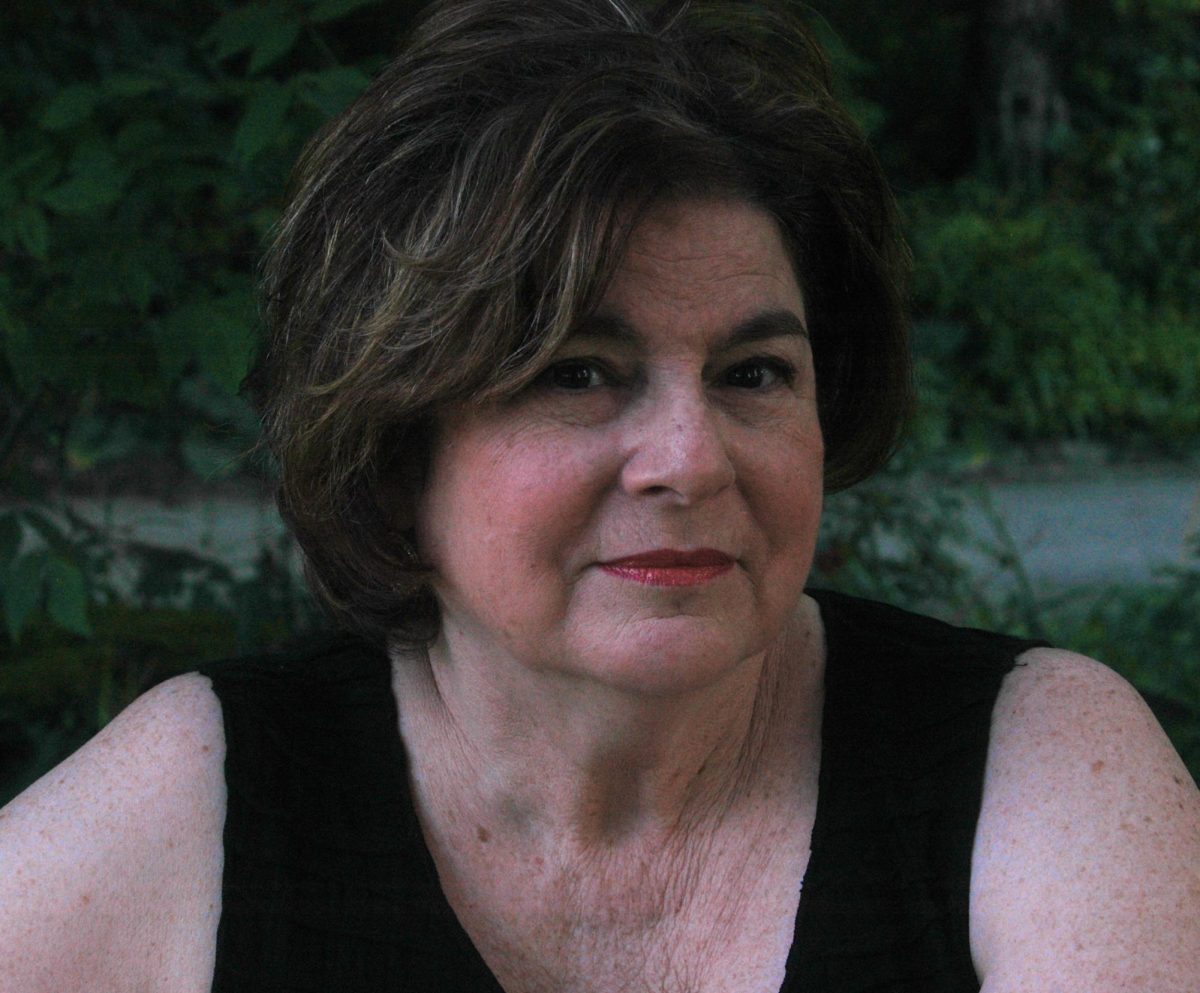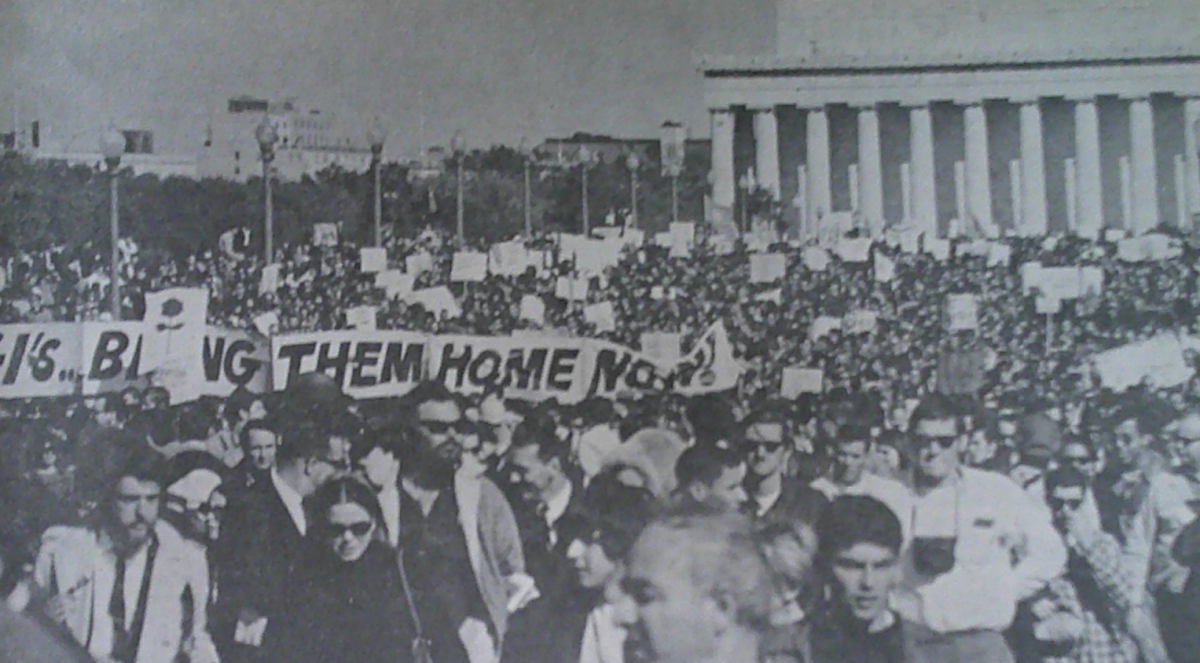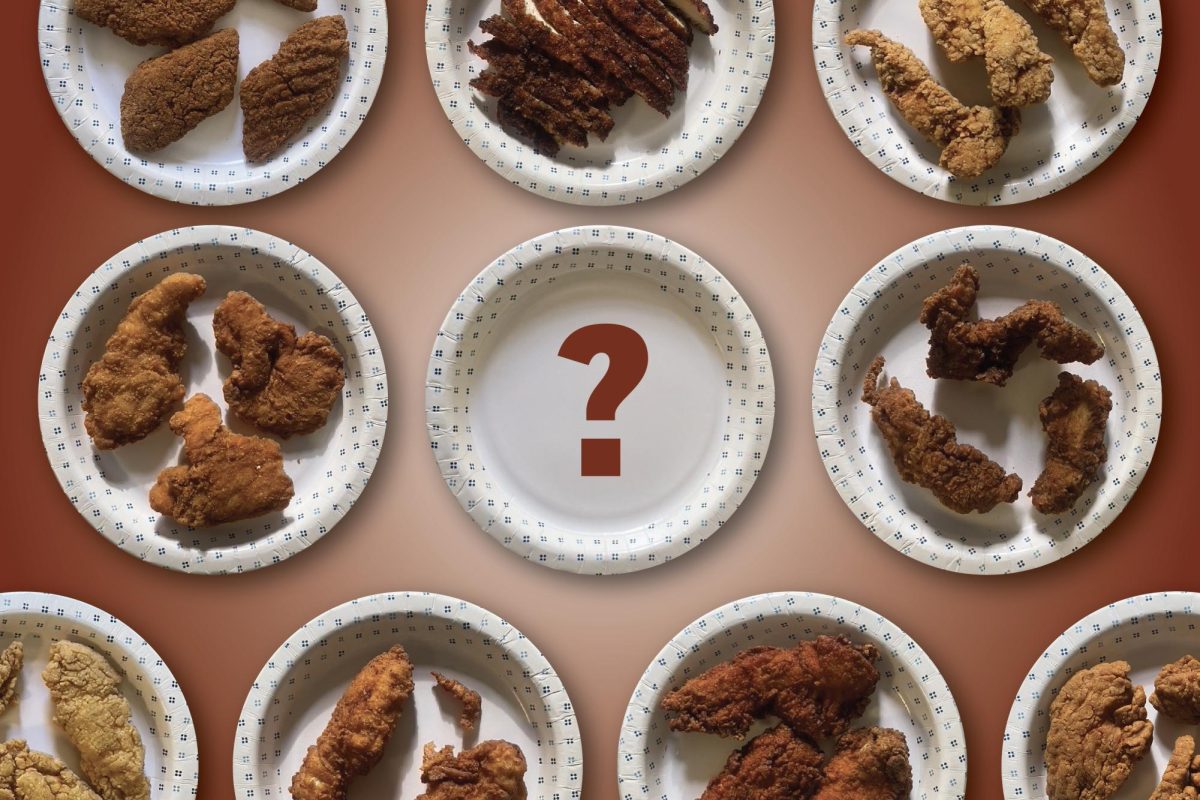
This post was written by Hatchet staff writer Sucharita Mukherjee.
On Tuesday, larger-than-life personality and transgender actress Laverne Cox began a night of impassioned speech with a quote from the social activist Cornel West: “Justice is what love looks like in public.”
The evening was a celebration of International Transgender Day of Visibility organized by Allied in Pride and co-sponsored by Program Board, Student Association, the LGBT Alumni Association and five other student groups.
She called her speech “Ain’t I A Woman? My Journey to Womanhood,” referencing Sojourner Truth, bell hooks and many other black feminists to tell Cox’s story of breaking boundaries, transcending shame and accepting others.
Cox is a blend of many minorities as a black, transgender woman from a working-class background, and she was raised by a single mother. She said each of those groups deserves justice.
Cox spent the majority of her speech talking about her transition from being one of two fraternal twin boys in Mobile, Ala. to being the Emmy-winning transgender woman she is today. She said her family played a huge role in this transformation.
Cox’s twin brother, who she said describes himself to be a “practicing homosexual because ‘gay’ is a white, bourgeois construct,” was supportive from the start. Her mother, after some concern about Cox’s large hands and feet, and a little education on the issues transgender individuals deal with, was also supportive.
The scrutiny Cox faced started early-on: Most of the trouble Cox got into growing up was when other students chased her at recess, or when teachers told her it wasn’t okay to imitate Scarlett O’Hara.
“My mother got a call saying, ‘Your son is going to end up in New Orleans in a dress if we don’t get him into therapy soon.’ I am the son in question. They were very confused,” Cox said.
Growing up in an African-American family, Cox was made aware of her race very early in life. But shame was a lesson learned later, she said. After her grandmother’s death, Cox felt as if her late grandmother would see the thoughts she had about herself and her attraction to men, and this shame brought on her suicide attempt in sixth grade.
The antidote to shame is empathy, Cox said. She found empathy when she studied at Marymount Manhattan, but she also found more unpleasant parts of the city life, like men who catcalled her to only realize, disgusted, that she was a biological male.
She emphasized creating safe spaces and aimed to inspire the audience to transcend boundaries. Her last words were orders to have the “tough conversations” – because even if you don’t know what to say, the words are still important.




